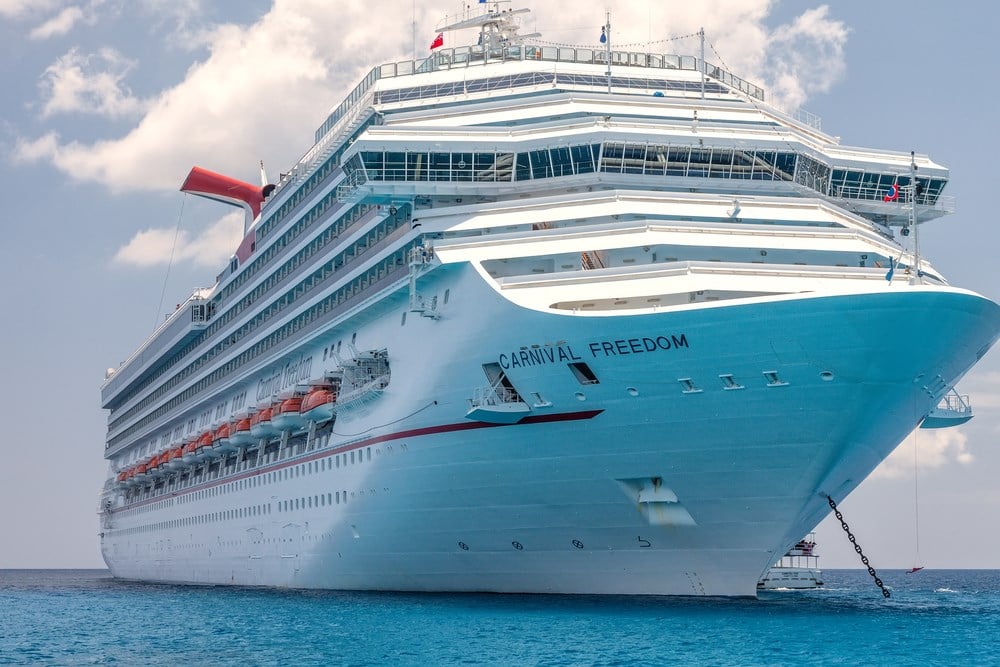
Through the first six months of 2023, Carnival Corporation & plc (NYSE:CCL) was one of the hottest large cap stocks not associated with artificial intelligence (AI). Since then, it’s been one of the coldest.
After more than doubling in the first half of the year, the cruise line operator has pulled back roughly 30%. Royal Caribbean and Norwegian Cruise Lines have experienced similar declines as the industry continues its bumpy pandemic recovery.
The latest update from Cruise Lines International Association (CLIA) reveals that cruise tourism is on pace to return to 2019 levels this year — and then some. Global cruise passenger volume is forecast to reach 31.5 million by year end, which would be 106% of 2019 levels.
This figure is expected to continue to rise in each of the next four years as first timers and repeat customers opt for cruise getaways over other types of travel. Much of the demand will come from Millennials and Gen-X — great news for an industry seeking to expand its audience beyond shuffleboard-loving retirees.
For Carnival, the uptick in demand has been evident in recent financial results. In the fiscal third quarter of 2023, revenue soared 60% to a record $6.9 billion with both ticket and onboard sales rising sharply. Higher occupancy rates along with lower fuel expenses drove consensus-topping earnings per share (EPS).
In spite of the strong September 29th report, CCL has continued to sink lower. Much of the concern relates to oil prices that have bounced sharply off last week’s lows. On Monday, the developing Israeli conflict with Hamas caused WTI crude futures to spike above $86.
While the latest geopolitical crisis in the Middle East could remain an overhang on cruise line stocks, eventually tensions will subside. When they do, the market will recall that Carnival is operating in calmer waters these days.
Here are three reasons to take advantage of the low tide.
#1 - Fundamentals Have Improved
Carnival’s third-quarter adjusted EPS of $0.86 was the company’s first profitable quarter of the post-Covid era. The performance confirms that even in an inflationary, higher interest rate environment, consumers are willing to spend on cruises.
Lower fuel costs certainly helped too. But as we’ve seen in recent days, these are unpredictable and largely out of company control. What Carnival can control is fuel efficiency. It has done very well in this department over the last few years, replacing 20 older, less efficient ships with 12 newer, more efficient ones. Together with ticket price hikes and other cost saving measures, this has Carnival on track for better profitability in the coming years.
The balance sheet, an area of concern for CCL bears, is also showing improvement. Long-term debt has been pared back to $29.5 billion from $32.0 billion at the end of fiscal 2022. The business is once again cash flow positive after ending Q3 with $5.7 billion in liquidity. Carnival's financials still need to strengthen to get to a point where dividends and buybacks are reinstated, but things are floating in the right direction.
#2 - Smoother Sailing Ahead
To capitalize on the cruise boom, Carnival is ramping its marketing to attract a broader range of cruisegoers. These efforts are translating to strong booking trends. In fiscal Q3, cruise bookings were 20% above 2019 levels as customers deposited $6.3 billion to claim their spot on a Carnival voyage. And despite higher ticket prices, 2024 advanced bookings are at historic highs.
Part of why cruise tickets are flying off the shelves is that Carnival has seemingly something for everyone. It continues to expand its offerings to include more starting points, more destinations and a mix of durations. In December 2023, Carnival Jubilee will launch from Galveston, Texas with promises of “next-level fun.” The underwater Dr. Inks, PhD bar is among the new attractions sure to win over cruise goers. With more than two dozen Carnival-branded cruises to choose from, families and solo travelers alike are driving a solid booking outlook.
#3 - Downside Is Limited, Upside Is Substantial
With the stock trading around 14x fiscal 2024 earnings, the word on Wall Street is that CCL is undervalued. Since the latest quarterly report, 7 of 10 analysts have issued ‘buy’ ratings. Last week, UBS lowered its price target from $23 to $20, but this implies more than 50% upside. Not one target issued in the last three months is below the current share price. Along with depressed technical indicators, this suggests CCL is oversold and the risk-reward tradeoff favorable.
